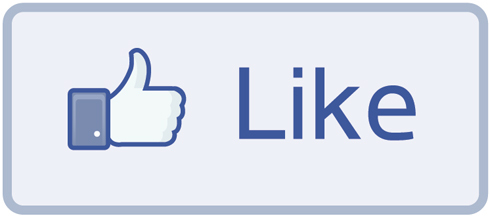PHOTO: Facebook’s “Like” button. Photo Courtesy of Keenan Dijon/Flickr.com
It’s sort of a sad world if we get this excited about Facebook inventing a “dislike” button.
Schadenfreude, the concept that one can derive pleasure from someone else’s pain, has clearly been around since before the Germans came up with the word. Not many people, though, would probably admit to espousing it. But don’t you ever get the feeling, with the “like” button currently the only option for people to indicate they’ve checked in on you, that sometimes people are liking you – and your problems — a little too much? Recently, before The Forum was insulted on our Facebook page, we were liked first by the same people who did the insulting. Sometimes, there’s a shaky line between hatred and love.
Mark Zuckerberg says that his company’s intention in “shipping” the forthcoming dislike button is to create a method by which Facebook users can express support as opposed to at least appearing to show schadenfreude (our word, not his). In fact, the Wall Street Journal reported, in a question and answer forum at Facebook headquarters this week, Zuckerberg said that developers are specifically working to ensure that users will only be able to use the new dislike button to express empathy. We’re no computer scientists over here, so we wonder exactly how – if not telepathically – Facebook will be able to know which way we mean our dislike.
The upshot, of course, is that one might want to make it clear that a status was read but would feel uncomfortable “liking” a negative post about someone losing a loved one or being in an accident or receiving upsetting health news; that smacks of schadenfreude. Soon, by clicking “dislike,” we will have a way to offer support, by clicking “dislike” instead. Sounds good, when the message is cut and dried: I’m having a bad day, you dislike that I am.
It’s admirable that, according to Zuckerberg, Facebook was hesitant for some time to introduce such a feature, as they didn’t want people to feel downvoted or disliked by their supposed friends if they post something controversial. The more political among us have all been there: you post a link, even without comment, on your Facebook page, and suddenly everybody and their neighbor hates you. Or loves you. Or feels your pain, or is happy that you feel pain.
Facebook itself is obviously lighting up this week with the news that there will soon be a quick-and-dirty way to express “dislike.” Whether or not we will actually be able to decipher, as the poster of statuses or links, the true intended meaning behind the clicking of dislike, is another question. As with “like,” won’t we be left wondering if the person who read what we posted is for or against us? Example: you post a story about alleged racism in the NYPD, and you get 50 dislikes. Why do you think your NYPD cousin clicked dislike? Does he agree that there’s racism in the NYPD, or does he disagree with the very fact that you posted the story? Another example: you post, “A bird just pooped all over my head as I was on my way to a job interview at the White House.” You get likes and dislikes. Do your friends think that’s a funny post, so they like it? Do they dislike the fact that you’re interviewing at the White House, because they’re Republicans? Do they dislike that you shared this information? Do they like bird poop? How will we know, if they don’t also comment? But we don’t want them to comment, because that opens up a can of worms, and then we’re just sorry we posted anything in the first place.
Also, will we be able to like something AND dislike it?
Sigh. Zuckerberg, back to the drawing board.

